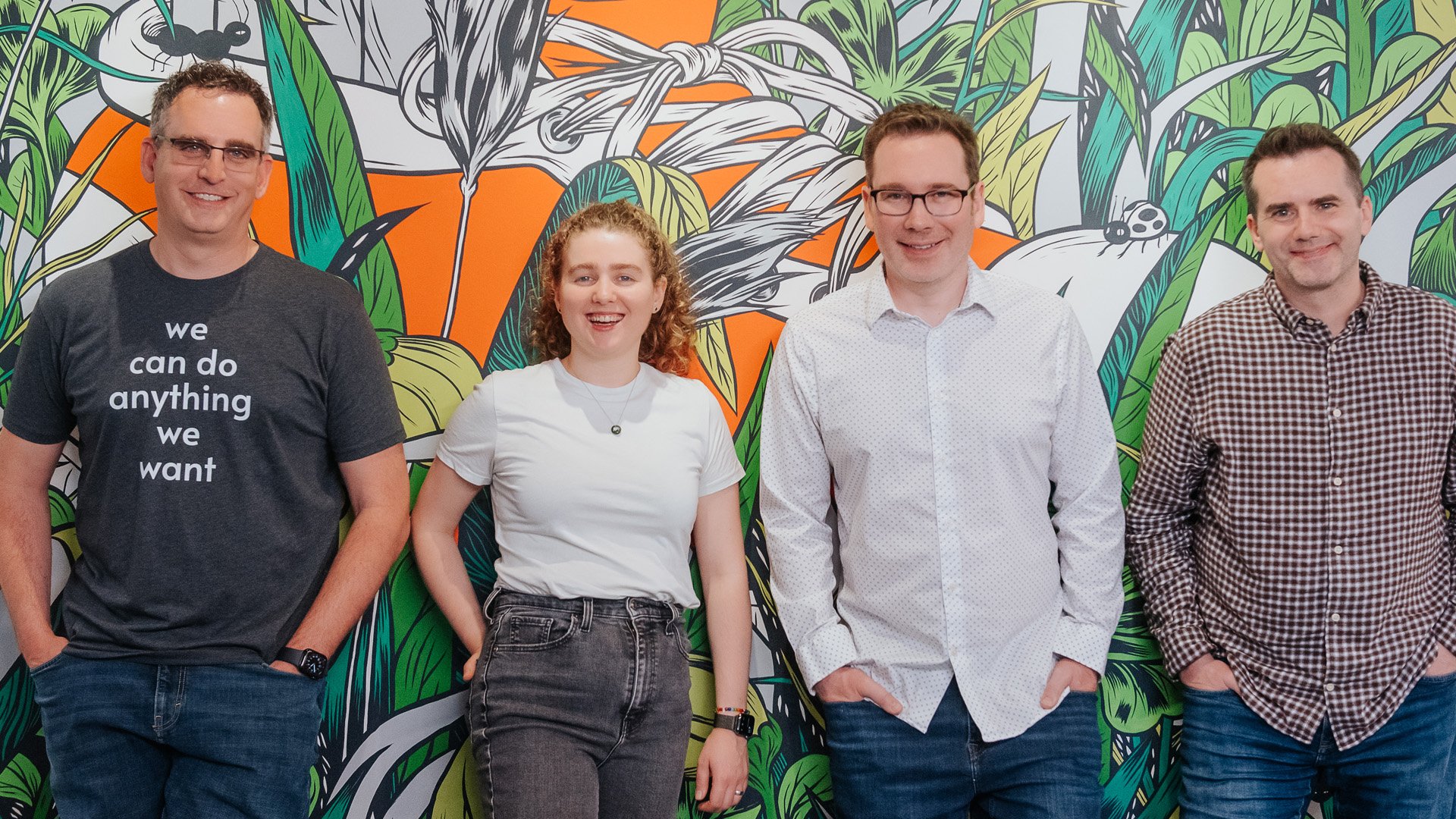“In the beginning of the universe, all was darkness — until the first organisms developed sight, which ushered in an explosion of life, learning and progress.” AI pioneer, computer science professor at Stanford University, founding director of the Stanford HAI, and Radical Ventures Scientific Partner Fei-Fei Li says a similar moment is about to happen for computers and robots.
In her recent TED Talk, “With spatial intelligence, AI will understand the real world” Fei-Fei shows how machines are gaining “spatial intelligence” — the ability to process visual data, make predictions and act upon those predictions — and shares how this could enable AI to interact with humans in the real world. This week, we share her talk:
AI News This Week
-
Harvard startup raises $26M, strikes three pharma partnerships for AI antibody design (Endpoints News)
Nabla Bio has secured $26 million in Series A funding led by Radical Ventures, along with strategic collaborations worth over $550 million with AstraZeneca, Bristol Myers Squibb, and Takeda. Nabla Bio specializes in using AI and wet lab technologies to design selective protein drugs, targeting challenging multipass membrane proteins. Co-founder and CEO Surge Biswas highlighted the potential to revolutionize drug design and expand disease-relevant targets. Generative AI and large language models are poised to master the language of proteins in the same way that they have mastered natural language in recent years, with profound implications for medicine.
-
Nanni AI knows why your baby is crying. Here's how it does that (CNET)
Radical Ventures portfolio company Ubenwa Health has launched Nanni AI, an AI-powered app available for free on iOS and Android, designed to help caregivers understand their babies’ cries. The app, similar to Shazam, categorizes cries into hunger, discomfort, emotion, and pain, providing tailored recommendations for each. Co-founder Charles Onu developed Nanni AI with data from clinical studies in Canada, Nigeria, and Brazil. The app has collected 1.5 million cries, aiding its algorithm’s accuracy.
-
OpenAI’s long-term risk team has disbanded (Wired)
OpenAI’s Superalignment team has dissolved less than one year after its creation. Announced in 2023, the team was focused on long-term AI risks. The news comes days after OpenAI co-founder Ilya Sutskever and Jan Leike, leaders of OpenAI’s safety efforts, announced their departures from the Microsoft-backed startup. OpenAI’s Superalignment team was focused on “scientific and technical breakthroughs to steer and control AI systems much smarter than us.” When it was announced, OpenAI said it would commit 20% of its computing power to the initiative over four years.
-
Britain’s got AI talent but that’s not enough (Financial Times)
This month, London-based AI start-up Wayve has secured $1.05 billion in funding from SoftBank, Microsoft, and Nvidia to develop autonomous vehicle software, marking the largest AI start-up fundraising in Europe. This highlights the UK’s potential to produce tech giants in the field of embodied AI. Jordan Jacobs, Managing Partner and Co-Founder of Radical Ventures emphasized, “At the end of the day, talent still matters most in this space. London is incredibly important.” As global competition in AI grows, the UK must broaden its adoption of AI technology to fully capitalize on its advancements.
-
Learning robot soccer from egocentric vision with deep reinforcement learning (Google DeepMind)
In a step forward for reinforcement learning (RL), Google DeepMind researchers have taught robots to play 1v1 soccer, training them entirely in simulation before successfully transferring their skills to real-world robots. This research demonstrates the rapid advancement of RL (in 2013 the most impressive thing RL could do was play Space Invaders). This research showcases how robots can learn complex behaviours from pixelated, first-person video inputs. It demonstrates the potential of AI to develop intelligent behaviours through creative problem-solving under constraints.
Radical Reads is edited by Leah Morris (Senior Director, Velocity Program, Radical Ventures).




